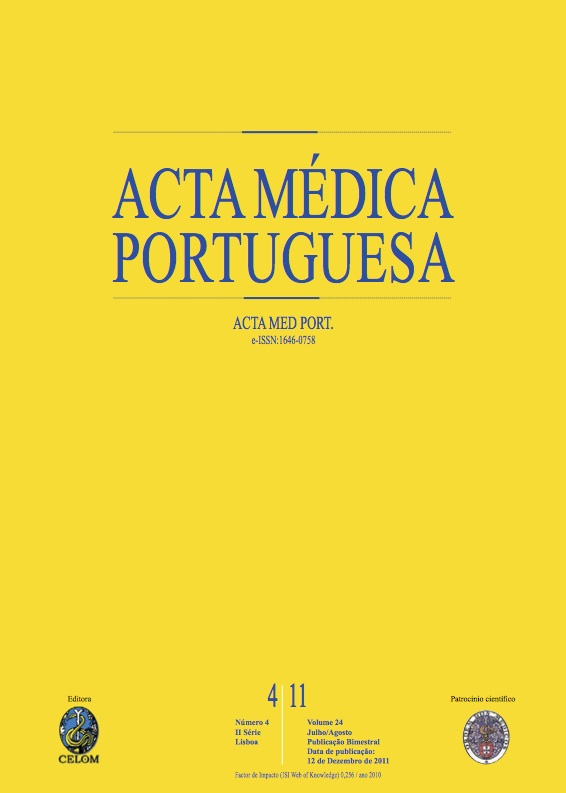Barreiras no acesso e utilização dos serviços de saúde pelos imigrantes: a perspectiva dos profissionais de saúde.
DOI:
https://doi.org/10.20344/amp.492Resumo
The growing international migration has reinforcing the importance of a greater adequacy of health services in order to respond effectively to immigrants' needs. Previous studies indicate that several difficulties in the access and utilization of health services persist for some immigrant groups. The objective of this study was to understand the perspective of different health professionals' groups about the barriers in access and utilization of services by immigrants. In a transversal study a questionnaire was applied to 320 primary health care professionals of Lisbon and Tagus Valley. Differences between professional groups were analysed using the Kruskal-Wallis test. To determine which groups diverged more in their perceptions, mean ranks of each group were compared. Of the total participants, 64.2% evaluated their knowledge and competencies to deal with immigrants as reasonable however, 15.2% evaluated it as bad. Around one third of professionals admitted to be unaware of the legislation which regulates migrants' access to services. The largest proportion considered that, at the individual level, the frequent change of residence, the lack of economic resources, the cultural and religious beliefs and traditions, the fear of denunciation when the immigrant is undocumented, the lack of knowledge about legislation and services, and the linguistic differences influence access and utilization of health services. Most considered as barriers at the professionals' and services' level the limited sociocultural skills, the complex bureaucratic procedures, the cost and the lack of interpreters. The divergences in the perception of these factors occurred mainly between office workers and the other professionals. The perceptions of health professionals about the barriers in access and utilization of services by immigrants highlight opportunities for intervention in the context of cultural diversity. Given the different perceptions among the professional groups, which may be reflection of the functions they perform, it is reinforced the importance of developing appropriate training to the different professional profiles. The capacity-building of health professionals to deal with cultural diversity may be an important component of human resources training, contributing to better adequate services to the needs of the immigrant.Downloads
Downloads
Como Citar
Edição
Secção
Licença
Todos os artigos publicados na AMP são de acesso aberto e cumprem os requisitos das agências de financiamento ou instituições académicas. Relativamente à utilização por terceiros a AMP rege-se pelos termos da licença Creative Commons ‘Atribuição – Uso Não-Comercial – (CC-BY-NC)’.
É da responsabilidade do autor obter permissão para reproduzir figuras, tabelas, etc., de outras publicações. Após a aceitação de um artigo, os autores serão convidados a preencher uma “Declaração de Responsabilidade Autoral e Partilha de Direitos de Autor “(http://www.actamedicaportuguesa.com/info/AMP-NormasPublicacao.pdf) e a “Declaração de Potenciais Conflitos de Interesse” (http://www.icmje.org/conflicts-of-interest) do ICMJE. Será enviado um e-mail ao autor correspondente, confirmando a receção do manuscrito.
Após a publicação, os autores ficam autorizados a disponibilizar os seus artigos em repositórios das suas instituições de origem, desde que mencionem sempre onde foram publicados e de acordo com a licença Creative Commons









